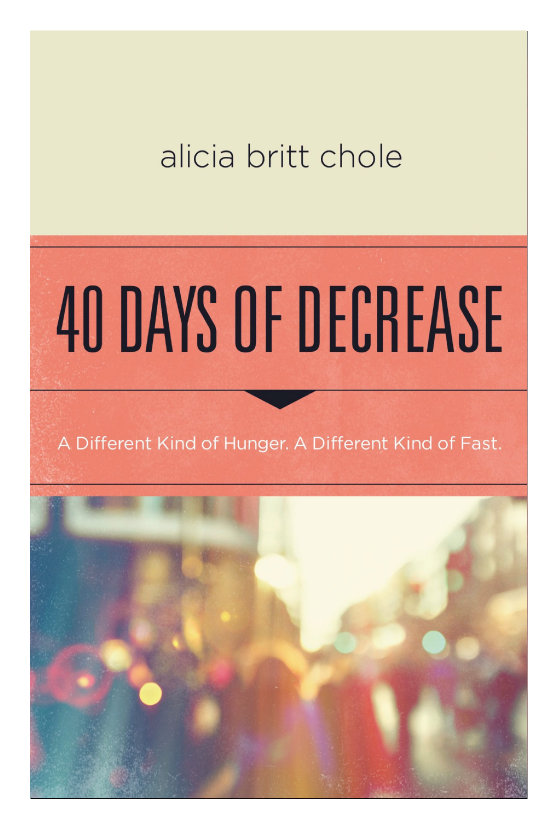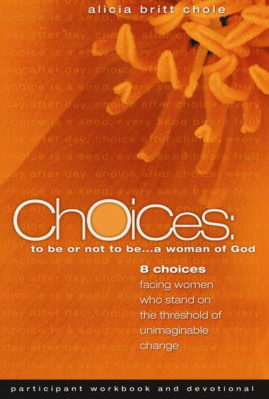It was not her fault.
She certainly did not ask for it.
She did nothing to earn it.
But she still chose to own it.
Elizabeth owned disgrace:
“In these days he has shown his favor and taken away my disgrace among the people.” (Luke 1.25)

Elizabeth owned disgrace as evident by her use of the powerful possessive pronoun my to describe it. She was barren and her culture’s prevailing opinion was that barrenness was a sign of disfavor. She simply did not fit within her culture’s definition of the blessed life.
You perhaps feel the same…if you are single on Valentine’s Day or did not have the opportunity to finish college or were the only one in your family who did not “go into the ministry” or your body type is not exactly fitness magazine cover material.
Statistically, we know today that infertility is sourced as often in the man’s body as in the woman’s. (Perhaps that might explain in part why Gabriel appeared to Zechariah instead of Elizabeth? Perhaps the miracle was in both their bodies?) But sourced is not a synonym for fault. Regardless of her cultures’ misconceptions, I am unaware of any way in which barrenness could have been Elizabeth’s fault.
Even so, she still felt responsible. Whether culturally or personally, she could not distance herself from–she could not refuse to take unearned responsibility for–the disgrace.
2000 years-ish later, we see clearly that it was scientifically incorrect, illogical, and unnecessary for Elizabeth to own disgrace over barrenness. It was culturally imposed, not personally earned. It was the creation of cultural shoulds, not volitional sins. However, disgrace does not easily acquiesce to reason.
Indeed, disgrace is quite a stubborn entity. It references something both public and shameful. When a husband’s unfaithfulness is made known, the papers speak of his wife’s disgrace. When a favored son is caught embezzling funds, it is said that he disgraced his family’s name.
Disgrace is never positive. It is the removal of (not the mere absence of) grace. Disgrace, then, is a shaming tool. Its favorite word is should. (As in, you should have done that or you should have been this.)
If you feel shamed by shoulds, you may be owning unearned disgrace.
As Jesus and I talked together about how Elizabeth owned a disgrace that she had not earned, I saw myself in her story. I too have owned unearned disgrace. Oddly, disgrace I have called “mine” was not over sin. Jesus has forgiven me for my sin. No, “my” disgrace has nothing to do with anything Jesus died for on the cross.
“My” disgrace is like Elizabeth’s: I have been beaten up by shoulds. Looking back, I can see how at times I owned unearned disgrace when my life did not fit in my culture’s definition of the blessed life.
The disgrace I have called mine is just as incorrect, illogical, and unearned as was Elizabeth’s.
It took a miracle to banish Elizabeth’s ownership of unearned disgrace: she became pregnant. Only then did she personalize God’s favor to the point where she could relinquish disgrace.
Frankly, I do not think we have to wait for a miracle.
Disown disgrace.
Why carry it any longer?
For Lent, fast shoulds.
Through Christ’s cross, God’s favor rests upon those who believe–whether or not their barrenness is publicly absolved by a miracle.







My soul and body instantly feel burdened and frozen when someone “shoulds” me. (Myself included)
This is a great reminder of why this happens. Thank you.
Sinking ever more deeply into an awareness of my identity in Christ is what enables me to see “the shoulds” for what they are; lies of the enemy to keep me focused on my shame/disgrace instead of on my Saviour. I think that your advice to “disown disgrace” is excellent. Thank-you for sharing your own vulnerabilities too.
So true, Wendy: seeing Him and seeing ourselves IN Him frees us from shoulds and shame. The power of His love–a force nothing on earth can stop.
Such beautiful thoughts that lead me to realize the pouncing of disgrace. I have battled disgrace many years, but have never known, until now, that disgrace owns me. It colors my thoughts with dark mis-perspective. Thank God that He has given me the power to fast my “shoulds” and to rise above disgrace. And, thank you, Alicia, for your lovely words of truth.
Thank you, Andrea, for commenting. It is amazing how it “colors” our thoughts (as you said so well). When praying about this area, I was aware of the disgrace I felt as an author over low book sales. Amazing–something so small, so real…and so unnecessary. How often, I wonder, do we all own unearned disgrace?
This is so perfect in today’s society when we are bombarded with questioning everything about ourselves, every choice we ever made. We are called to wonder “what if…” which leads directly into “I should…” or “I should have…” thinking. I love this…thanks for sharing!
Thank you, Nicki! Yep–our culture seems to thrive on “shoulds.” It keeps us second-guessing and in state of continually anxiety. How thankful I am that Jesus is literally our peace!
I’m certain I cannot add anything to this post. It is one that goes deep into my soul. The disgrace over a few extra pounds in my childhood drove me straight into a battle with anorexia. It has taken years for me to disown this disgrace. Disgrace, shame, ‘should’…they all need disowning, and Jesus gives us the power to do it. Bless you for this post!
Amen! Thank you, Leah, for your comment. Yes–may we all this Lenten season disown disgrace!